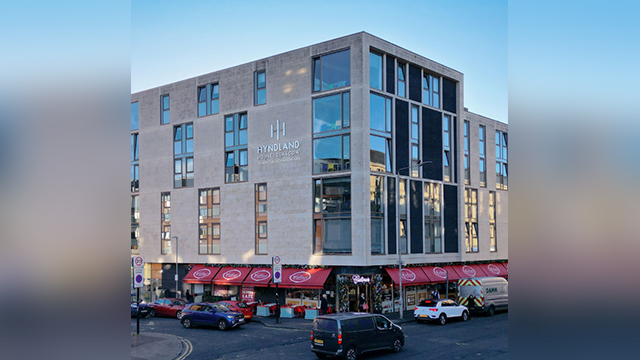Britain’s bankers would probably like to forget the past 12 months, but they would do well to remember them. Alex Catalano and Carl Mortished recap on the property crash of 1992
Jan
After six months of negotiations, debt-strapped developer Rosehaugh and its partner Stanhope officially abandon plans to merge. “It all got too difficult and too long,” says Rosehaugh’s finance director, Paul Rivlin.
- Chesterton merges with De Groot Collis; last year’s incorporation enables the agents to issue 3.8m new shares to De Groot’s partners, who will own 10% of the combined firm.
Feb
Barclays Bank chairman Sir John Quinton says that the £40bn of outstanding loans to the property sector “is not a problem because of its size.” Speaking to the Estates Gazette Forum, a gathering of 100 industry leaders, Sir John argues that at 6.9% of total lending, the British banks’ exposure to property is not excessive.
- Developer Olympia & York launches a massive £215m fundraising bid by offering private investors units in a property enterprise trust based on one of its Canary Wharf buildings, 10 Cabot Square.
Mar
Power Corporation and Brent Walker unwind their partnership, leaving Power in control of the Trocadero leisure complex near Piccadilly Circus and the adjacent island site.
Robin Power is looking for a new partner: “The ideal type would be an investor who could take a five- to seven-year view and understand the spin-off which comes from the combination of leisure and retailing in that location.”
- Elliott Bernerd’s private company, Chelsfield, embarks on an £80m fund-raising exercise as part of the restructuring of his joint venture with P&O. The two companies are unstitching Pall Mall, the vehicle they used to take over Laing Properties in a £492m bid in 1990. According to Bernerd, he wants to take Chelsfield public “as soon as practicable”.
- Olympia & York is locked in talks with its bankers as it runs out of cash. The company has been forced to abandon its property enterprise trust fund-raising bid and holders of its Canadian dollar commercial paper failed to roll over their investment, leading O&Y to redeem some $C400m worth.
Apr
Debt-strapped developer Speyhawk is given four years’ breathing space by its bankers. A syndicate of 46 banks led by Barclays and Citibank agree to convert some £75m of debt into unsecured convertible loan stock for four years. “The banks have behaved superbly,” says Speyhawk chairman Trevor Osborne.
His company, which has total borrowings of £300m, announces a £216.8m loss for the year to September, following a huge £204.9m writedown on developments’ value.
- Bucking the trend, quoted surveyor Herring Baker Harris announces a 1% rise in profits to £3.5m.
May
Canary Wharf, Olympia & York’s £1.6bn flagship project, is put into administration.
“It was a unanimous decision of the banking syndicate,” says a Barclays spokesman. “We felt that the risks of doubling our money were not matched by sufficient safety.”
- In the same week, Mountleigh Group, one of the 1980s star property traders is put into receivership, owing more than £500m to banks and bondholders. Under Tony Clegg’s chairmanship, the former Yorkshire textile company built up a large property trading portfolio, financed in part by the company’s highly-rated shares. But Clegg retired and new management from US corporate raiders Nelson Peltz and Peter May failed to rescue the company.
- Brixton Estate hikes pre-tax profits 17% to £27.4m for the year to December. The industrial specialist manages to keep the fall in the investment portfolio to a low 5.7% – non-UK properties show strong growth on the continent and the company’s industrial portfolio (56% of the total) holds steady.
Jun
Burton Group raises £60m in a novel financing backed by CIN and Scottish Amicable. The retailer issues £100m of zero-coupon bonds repayable in 1997 and secured on six properties; the new twist is that the payback is guaranteed by a put option which gives Burton the right to sell the buildings in five years to the two institutions for £100m.
Jul
Greycoat raises £125m to refinance Embankment Place, the 350,000-sq ft building which is let to Coopers & Lybrand.
The funds are being provided by a syndicate of eight European banks, managed by Hypo-Bank; a seven-year, fixed-rate mortgage will cost Greycoat £13.7m pa compared with the building’s £15.3m rent roll.
Aug
Banks are withdrawing from property funding, reducing liquidity in the sector. “In the 1990s, there will not merely be a slowdown in bank finance; the flow is being cut to a trickle,” says Debenham Tewson & Chinnocks review, Money into Property. One-third of the banks which DTC surveyed are closing their property loan books and just over half reported that loan repayments are running behind schedule.
Sep
Barings refinances the former Times building at 238 Gray’s Inn Road, WC2, by securitising the lease. Using the strength of the tenant’s covenant – the building is let to the Government’s Training Agency – Barings has devised a structure that resembles a self-amortising debenture; the rental stream pays off interest and principle. The bonds carry an interest rate of 150 basis points above gilts.
The building was bought by Swedish investor Central London Securities in 1988 for £42m, and is currently let at £23 per sq ft on a lease expiring in 2025.
- Quoted surveyor Debenham Tewson Chinnocks is in talks with Bernard Thorpe, which “may or may not lead to a merger of the two practices.”
Oct
John and Peter, – “the fabulous flying Beckwith brothers” – part company with London & Edinburgh Trust, two years after selling the company to Swedish insurer to SPP. In the best-timed corporate deal of the decade, the Beckwiths master-minded the disposal of the firm they founded, for £500m in April 1990. Meanwhile, the Swedish insurer – now merged with Trygg-Hansa – is struggling with collapsing property markets and banks in Sweden. “The changes are undertaken in order to integrate the international property activities more closely with other investment and property operations of Trygg-Hansa SPP,” the Swedes blandly explain. The Beckwiths stay mum.
- Hong Kong Land stages a dawn raid, buying 14.9% of Trafalgar House and offering 85p a share for another 15%. The Tai-pans ask for board representation, but Trafalgar – which avoided writing down its £155m of development properties last year by shifting them into the investment portfolio and taking the hit on reserves – advises shareholders to refuse HKL’s offer. HKL’s tender offer fails, but Trafalgar’s Sir Nigel Broackes and Sir Eric Parker resign.
Nov
NOVEMBER Interest rates fall to 7% after a series of U-turns on economic policy following Sterling’s pull-out from the ERM. Chancellor Norman Lamont announced a “budget for jobs” with an increase in the PSBR to £37bn.
The decline in short-term rates opens a window of opportunity for borrowers to lock into five-year money at a cost below 8%. But market fears of a new bout of inflation keep rates high at the long end, shown by the steep rise in gilt yields between three and 10 years.
- Rosehaugh calls in administrative receiver KPMG Peat Marwick when its bankers turn down the company’s business plan. The developer’s rush for growth in the 1980s under then chairman Godfrey Bradman left it with debts of some £350m and a spider’s web of 53 subsidiaries. Rosehaugh’s investments include a stake in the London Regeneration Consortium, backers of a massive scheme at King’s Cross Station, and a half share of Rosehaugh Stanhope Developments.
- Stanhope announces that it is talking to its lead banker, Barclays, over the extension of loan facilities. The company announced a £15.3m loss in May and the 1991 balance sheet reported borrowings exceeding £200m.
- Rosehaugh Stanhope Developments is refinanced by extending over £1bn of loan facilities to 1997. The joint-venture company, which owns the Broadgate and Ludgate office complexes in the City of London, is now ring-fenced from the troubles of its two shareholders.










